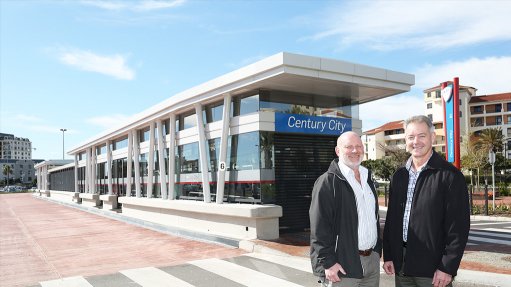
Cape Town’s MyCiti bus service transported its highest ever number of passengers in May this year, said Cape Town Transport MMC Brett Heron on Thursday.
Addressing delegates at the Southern African Transport Conference in Pretoria, he said MiCiti had seen 700 000 passenger journeys in May. The total number of passenger journeys since the service rolled out in 2010 now numbered more than 40-million.
Heron said Cape Town was “essentially” at the end of the roll-out of Phase 1 of the bus system, with only “some infrastructure” to still be put in place.
Phase 1 consisted of 42 closed stations, four trunk routes, 350 pairs of kerbside stops and 44 routes.
The investment in MyCiti, to date, totalled more than R6-billion.
Heron said MyCiti was implemented as one answer to the high cost of transport in South African cities. A Cape Town study found that low-income households spent between 40% and 60% of their income on transport.
He noted that a vocal minority had been opposed to Phase 1 of the MyCiti system, as continued to be the case as the city geared up for the roll-out of Phase 2.
Those opposed to the system included minibus operators, fearing job losses, and also the more affluent, who did want bus stops near their homes, he added.
Phase 2 of MyCiti would connect areas such as Mitchells Plain and Kayelitsha with Wynberg and Claremont.
It could impact around one-million people, said Heron.
However, a number of Wynberg residents have challenged the fact that they had to be evicted from their South Road council homes to make way for Phase 2 of the MyCiti system, with the high court ruling in their favour.
“We are appealing the interdict,” said Heron.
Planning for Phase 2 was continuing, however, even though access to Wynberg’s central business district had now been restricted.
Heron noted that the “obsession” with bus-rapid transport (BRT) systems in South Africa as the “saviour” of public transport was “waning”.
This provided local councils “the space to articulate” that public transport was not all about BRT.
“Our public transport vision is to have a network. BRT is one component.”
BRT was introduced to South Africa largely in response to the Soccer World Cup, held in 2010.